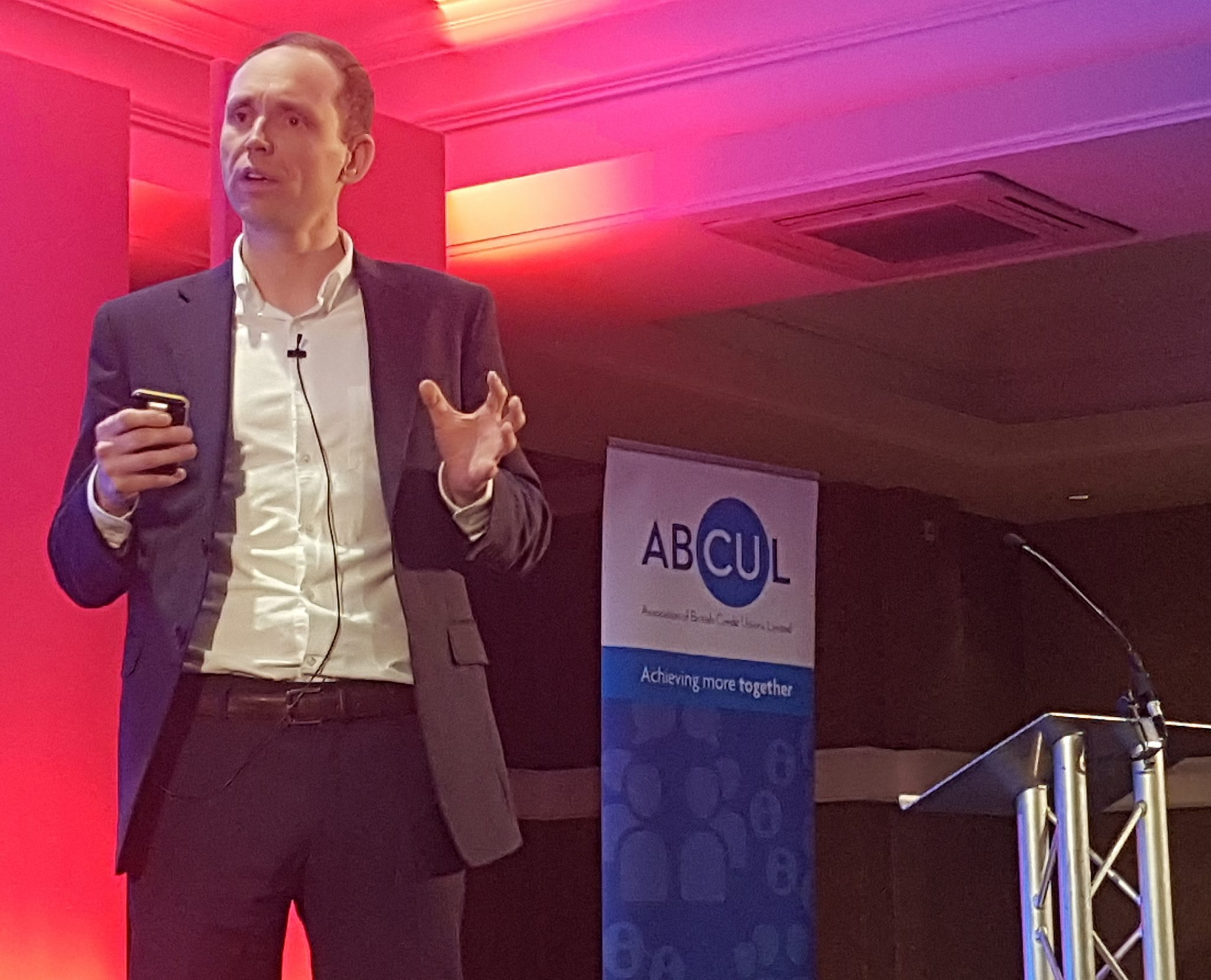New technology is changing the expectations customers have of financial services, giving rise to serious concerns around security.
But technology also presents opportunities to reach new markets – making it vital that credit unions keep up with new developments, delegates at this year’s conference of the Association of British Credit Unions (Abcul) were told.
A plenary session on fintechs heard presentations on a range of new technologies which can help credit unions do this.
Andrew Rabbitt from Incuto, which develops financial technology for credit unions, said new tech could “make credit unions into community-focused challenger banks …. faster than a payday lender, more functional than a bank, and cheap”.
Pitching his fintech to the conference, he said it could offer new possibilities to the sector, such as partnering with the Post Office to offer branch facilities where members can deposit and withdraw money.
“That’s the kind of stuff that fintechs can do, it comes with a bank account and sort code,” he said. “It allows you to connect in a really safe and ethical way with the people you want to get in touch with.
“It also reaches people currently sat in banks wondering if there’s somewhere better to go.”
“We’re using innovative tools to make it fast and slick.”
Related: Paul Gosling on credit unions and the digital transition
Matthew Elliott from fintech Nivo said his product “offers members a really safe way to sign up open loans and engage”.
He added: “It’s not all about technology – it has to have empathy. But there are inescapable truths about the pace of change across the industry. There are opportunities and risks that you need to start planning for.

“Mobile use is continuing to shoot up. 78% of the UK population is using a smartphone two-four hours a day – and fastest growth is the over -55s. In the South Manchester Credit Union 65% of traffic comes from mobile devices. It’s something we’ve got to accept.”
But he said consumers were getting fed up of a proliferation of different apps and passwords and favoured instant messaging as a channel.
“In financial services people want it easier than ever,” he said.
There are contradictions here: consumers are frustrated by identity verification processes but more concerned than ever about security online.
“It’s pretty easy for a fraudster to go dark web and buy all your information,” he said. “Credit card details are £2 for an individual. You need to be more specific and managed about making sure of who you are talking to. You need to start educating customers about risk.”
Related: Book review – How community banking can survive fintech
But he said consumers will adopt new technology such as visual recognition systems if it makes using a service easier and safer.
“With the proposition you have, payday lenders should not exist,” he added. “You can make your customers financially secure and digitally secure as well.”
Cheryl Fatnassi of Opportunities Credit Union, which caters for low-income customers, said: “Smaller credit unions are not gong to survive unless they use new techs to simplify.
“Fintechs are useful in the post 2008 world with new regulations and new disruptors like Whatsapp and Bitcoin which are revolutionising how business works. There are systems like mobile wallets.
“Our regulators are not excited about us working with these new systems but they are here to say. They provide lending, payments, big data, messaging.
“People from outside the financial services space are moving in. The question is how to to collaborate to make these systems more affordable – we’re a small credit union, we can’t afford to invest in all this new tech.”